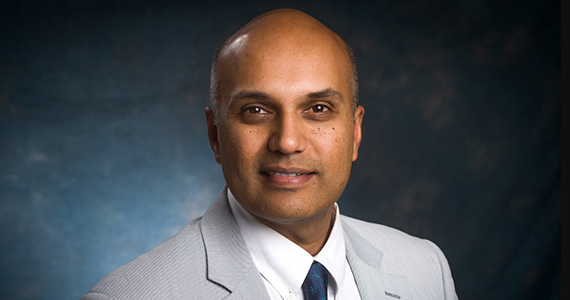
Kondal Kyanam, M.D., will serve as Interim Director for the Division of Gastroenterology and Hepatology, effective July 1, 2024, when Douglas R. Morgan, M.D., M.P.H., will step down as Division Director and become Director of Global Health Programs for the division. Dr. Kyanam is Associate Professor of Medicine and Director of Endoscopy at UAB Medicine. He also directs the division’s Advanced Endoscopy Fellowship and Advanced Endoscopy at the Birmingham VA Medical Center.
After receiving his medical degree from Osmania Medical College, Dr. Kyanam trained in internal medicine and in gastroenterology at LSU Health Sciences Center, Shreveport. At LSU, he was recognized as the “Best Graduating Resident” and served as Chief Resident in Medicine and Associate Program Director of the Internal Medicine Residency. He completed training in Advanced Endoscopy at Mayo Clinic, Jacksonville, before joining our faculty.
At UAB, Dr. Kyanam has leveraged his procedural expertise in general and advanced endoscopy to improve the volume, efficiency, throughput, safety and quality of our endoscopy programs. He led the expansion of the endoscopy suites on JT6, trained faculty in new procedures, and recruited faculty to accommodate the needs of patients with cancer, liver transplant patients, and other patients with digestive diseases. For many procedures, Dr. Kyanam is recognized as a “go-to” specialist, and he is one of the very few endoscopists in the Southeast who perform advanced endoscopy procedures for seriously ill children.
Dr. Kyanam has also been recognized with many awards for teaching and service, including the Internal Medicine Residency Teaching Excellence Award, the C. Mel Wilcox Endoscopy Educator Award, and the Department’s Unsung Hero Award. He also founded UAB’s Advanced Endoscopy Fellowship and instituted the Endoscopy Elective for the Tinsley Harrison Internal Medicine Residency. Dr. Kyanam’s research has elucidated the outcomes of advanced endoscopic procedures as well as the effectiveness of alternative endoscopic procedures and their relationship to social determinants of health.
Dr. Kyanam succeeds Douglas R. Morgan, M.D., MPH, AGAF, FACG, who led the division over the last six years. Under Dr. Morgan's leadership, the division grew in excellence, scale, and diversity to meet the needs of Alabama and the Deep South. Notably, the division brought women and URiM faculty and fellows to a field in which they have been underrepresented. Regional pillars of excellence, such as advanced endoscopy, grew in conjunction with UAB’s cancer and liver transplantation programs. New programs of excellence are expanding care for people with digestive diseases such as inflammatory bowel disease, celiac disease, metabolic dysfunction-associated steatotic liver disease, viral hepatitis and other digestive diseases.
The division’s disparities program includes a partnership with Cooper Green Mercy Health Services and a Fellowship curriculum. Colorectal cancer screening significantly increased for people across greater Birmingham, bolstered by significant advances of the UAB endoscopy facilities. The foundation for a bright future has been laid with a new Funds Flow model developed by Dr. Morgan and DOM Executive Administrator Shane Wiley, MBA, with UAB Medicine leadership to recruit and retain outstanding faculty and fellows who will lead programs to meet the needs of Alabama and the Deep South.
As Director for Global Health Programs, Dr. Morgan will build on his transformational work in cancer prevention in Hispanic-Latino populations in Latin America and the Southeast. He was recognized by the American College of Gastroenterology with the 2023 International Leadership Award. He will expand collaborations and translational research in northern Central America and Latin America for the prevention of gastric cancer, which is one of the leading causes of cancer mortality in the world. In addition, Dr. Morgan is leading new U.S. guidelines for gastric cancer surveillance and screening to address this major U.S. cancer disparity that affects many groups.